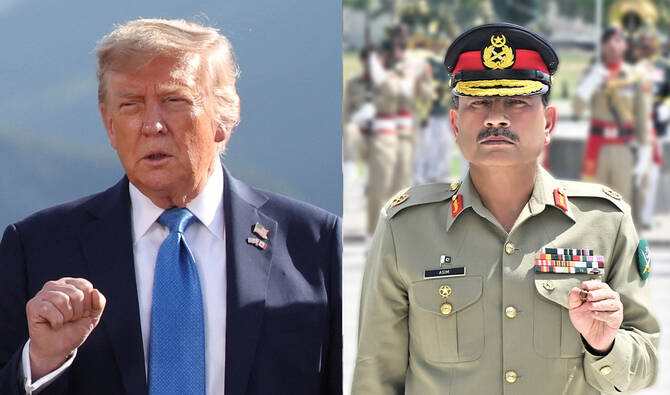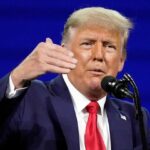
Historic White House Visit
On June 18, 2025, U.S. President Donald Trump hosted Pakistan Army Chief and newly appointed Field Marshal General Asim Munir for a private luncheon at the White House. This marks the first-ever meeting between a U.S. president and a Pakistani military leader in such a setting since 2001, and notably, it took place without senior Pakistani civilian officials in attendance. The event reflects a significant shift in U.S.-Pakistan engagement, signaling renewed high-level military-to-military dialogue.
Acknowledging Restraint and Regional Calm
President Trump used the meeting to laud both General Munir and Indian Prime Minister Narendra Modi for their restraint in defusing the brief but intense military conflict between India and Pakistan that ended on May 10. Trump stated, “Two very smart people decided not to keep going with that war; that could have been a nuclear war,” crediting the leaders for avoiding escalation. His comments position Pakistan’s military leadership as responsible agents of regional stability.
Strategic Talks on Iran and Regional Security
Discussions also covered the escalating conflict between Israel and Iran. Trump emphasized Pakistan’s deep understanding of Iranian dynamics, noting, “They know Iran very well, better than most,” and suggested Pakistan may play a strategic role in mediating tensions. This aligns with growing international concern over Iran’s regional ambitions and Islamabad’s proximity to Tehran.
Diplomatic Significance and U.S. Realignment
This visit indicates a notable recalibration in U.S. – Pakistan ties. Analysts see this lunch as part of a broader geopolitical strategy aimed at enhancing U.S. coordination with Islamabad on counterterrorism, trade, and regional diplomacy, especially amid concerns of China’s growing influence in Pakistan. The U.S. appears to be balancing its priorities, simultaneously courting Pakistan’s military and civilian sectors without dismissing its strategic ties to India.
Milestones in Munir’s Career
General Asim Munir, who was promoted to Field Marshal in May 2025, becoming only the second Pakistani officer to hold the rank, has been at the centre of Pakistan’s military strategy. His elevation followed his leadership during the recent standoff with India, underlining his status as the country’s most powerful military figure. He also leads the influential Special Investment Facilitation Council (SIFC), signalling crossover influence across military and economic domains.
Regional Security and Counterterrorism Focus
Washington and Islamabad are engaged in deeper talks on terrorism and regional security, particularly in the context of Afghanistan and balancing China’s influence. The U.S. signalled conditions attached to closer ties, urging Pakistan to maintain cordial relations with India and monitor militancy trends along its border. Meanwhile, India’s Ministry of External Affairs reiterated concerns about Pakistan’s support for cross-border terrorism during Munir’s visit.
Domestic and International Reactions
In Pakistan, the visit sparked mixed reactions. Some opposition groups expressed unease, reflecting internal debate over the country’s foreign policy direction. In India, political leaders criticized the visit, with senior opposition figures labelling it a “diplomatic setback”. Diplomatic voices in Washington interpret the event as a calculated attempt to re-engage Pakistan’s military establishment for enhanced regional cooperation.
Broader Geopolitical Implications
This diplomatic move takes place against a backdrop of turbulent South Asian geopolitics. The recent four-day India-Pakistan conflict, the ongoing Israel-Iran crisis, and China-Pakistan strategic ties all shape the region’s security landscape. The White House meeting underscores Pakistan’s growing importance to U.S. global objectives, including stability in South and Central Asia, and suggests a departure from unilateral alignment with India.
Looking Ahead: What This Signals
The meeting could pave the way for deeper defence and economic cooperation, potentially including joint counterterrorism initiatives, arms and intelligence sharing, and investment deals. It also raises the prospect of Pakistan playing a mediating role in the broader Middle East conflict. However, the full impact depends on how the civilian government in Islamabad balances military influence and whether Pakistan addresses U.S. concerns regarding militancy and China.
A New Chapter in U.S. – Pakistan Relations
The White House luncheon with General Munir reflects a nuanced shift in U.S. foreign policy toward South Asia, seeking to engage Pakistan’s military leadership more directly, even as it maintains relations with India. As Washington recalibrates its regional strategy amid global uncertainties, this diplomatic overture could redefine Washington – Islamabad ties, foster strategic collaboration, and influence the trajectory of broader regional peace and security.




































Leave a Reply